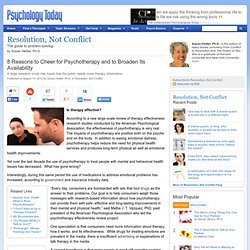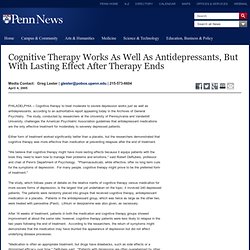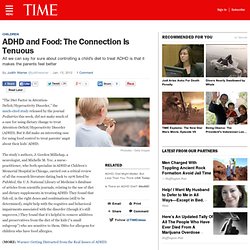

Food. Body Image. Kids & Teens. Depression. Sex. Mental Illness Linked To Chronic Physical Illness Risk. Why willpower matters – and how to get it. Blowing off steam? Why an outburst of swearing increases our stress levels. By Daily Mail Reporter Updated: 12:09 GMT, 1 August 2011 It's news that might surprise foul-mouthed celebrities such as Gordon Ramsay and Wayne Rooney. But scientists now believe that swearing actually increases, not decreases, our stress levels. This is because using foul language triggers a reaction deep inside the emotional centre of the brain, according to a study.
Early Adversity, Adult Misery: How Small Events Trigger Depression - Hans Villarica - Life. A new study confirms that childhood wounds don't always heal--and explains why some challenges reopen them and others don't The brain does something weird when confronted with stress: It kills off neurons that could help it defend itself, and prevents new brain cells from forming in the hippocampus, a region associated with healthful stress responses.

For years, mental health experts have tracked how this biological chain of events plays out in real life. Numerous studies on victims of childhood abuse, loss, or parental separation have documented how such woes make them more vulnerable to stress and, consequently, depression in a process called stress sensitization. Addiction: On The Wagon. Alcoholism may not necessarily be a life-long disease.

In fact, a myriad of scenarios can affect an individual's recovery. By Willow Lawson , published on May 01, 2005 - last reviewed on September 29, 2008 Once an alcoholic, forever an alcoholic, right? Not according to a 2005 government study, which found that 40 percent of people with alcohol dependence were in full recovery a year after tackling their addiction .
Roughly 20 percent of problem drinkers abstained from alcohol completely, but about the same number reported that they drank occasionally without a relapse. The Surprising Truth About Addiction. Change is natural.

You no doubt act very differently in many areas of your life now compared with how you did when you were a teenager. 'The Demise of Guys': How video games and porn are ruining a generation. Video games can go wrong when the person playing them is desensitized to reality, the authors say.

Play Better Golf By Playing Bigger Holes. Here are some quotes we have all heard (or said ourselves) on the golf course or at the ball diamond.

On a good day:"It was like putting into the Grand Canyon""The baseball looked like a beach ball up there today" On a bad day:"The hole was as small as a thimble""I don't know, it looked like he was throwing marbles" The baseball and the golf hole are the same size every day, so are these comments meaningless or do we really perceive these objects differently depending on the day's performance? And, does our performance influence our perception or does our perception help our performance? Jessica Witt, an assistant professor of psychological science at the University of Virginia has made two attempts at the answer. Fast forward to July, 2008 and Witt and her team have just released a very similar study focused on golf, "Putting to a bigger hole: Golf performance relates to perceived size". Researchers at Vanderbilt University may have the answer.
Study reveals wanted objects are seen as closer. We assume that we see things as they really are.

But according to a new report in Psychological Science, a journal of the Association for Psychological Science, if we really want something, that desire may influence how we view our surroundings. Psychological scientists Emily Balcetis from New York University and David Dunning from Cornell University conducted a set of studies to see how our desires affect perception. 8 Reasons to Cheer for Psychotherapy and to Broaden Its Availability. Is therapy effective?

According to a new large-scale review of therapy effectiveness research studies conducted by the American Psychological Association, the effectiveness of psychotherapy is very real. The impacts of psychotherapy are positive both on the psyche and on the body. In addition to easing emotional distress, psychotherapy helps reduce the need for physical health services and produces long-term physical as well as emotional health improvements. Yet over the last decade the use of psychotherapy to treat people with mental and behavioral health issues has decreased. How Psychotherapy Changes the Brain. Cognitive Therapy Works As Well As Antidepressants, But With Lasting Effect After Therapy Ends. PHILADELPHIA -- Cognitive therapy to treat moderate to severe depression works just as well as antidepressants, according to an authoritative report appearing today in the Archives of General Psychiatry.

The study, conducted by researchers at the University of Pennsylvania and Vanderbilt University, challenges the American Psychiatric Association guidelines that antidepressant medications are the only effective treatment for moderately to severely depressed patients. Either form of treatment worked significantly better than a placebo, but the researchers demonstrated that cognitive therapy was more effective than medication at preventing relapses after the end of treatment. "We believe that cognitive therapy might have more lasting effects because it equips patients with the tools they need to learn how to manage their problems and emotions," said Robert DeRubeis, professor and chair of Penn's Department of Psychology. The Family Meal. Judith Warner: Why The Connection Between Food and ADHD Is So Tenuous. “The Diet Factor in Attention-Deficit/Hyperactivity Disorder,” the much-cited study released by the journal Pediatrics this week, did not make much of a case for using dietary change to treat Attention-Deficit/Hyperactivity Disorder (ADHD).
